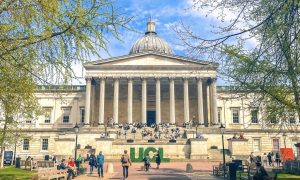Visa is a crucial part of the study abroad process, and the application process is complicated and prone to delays and even refusals due to details. In order to help students successfully pass the visa application, this article will summarizestudent visaFrequently asked questions and solutions for applications, covering preparation of documents, interview techniques, proof of funds and practical advice on dealing with unexpected situations.
I. Frequently Asked Questions in Visa Application
- Incomplete preparation of materials
Visa applications require the submission of a large number of documents, including passports, acceptance letters, proof of funds, and medical reports. Once certain documents are missing or do not meet the requirements, it may lead to visa refusal. - Insufficient proof of funds
Most countries require applicants to provide proof of sufficient funds to ensure that they can afford tuition and living expenses during their studies. If the amount of proof is insufficient or the source is not clear, it is easy to doubt the financial ability. - Wrong choice of visa type
Visa types vary from country to country, and choosing the wrong type of visa can result in a failed application. For example, some short courses may require a tourist visa rather than a student visa. - underperform in an interview
Some countries (e.g., the U.S. and the U.K.) require students to be interviewed, and unclear and unconfident answers or expression of information inconsistent with the documents during the interview can easily trigger questions from the visa officer. - Late submission
Visa review usually takes weeks or even months, and if you submit it too late, you may miss your start date. - Past records issues
Past visa refusals, poor immigration records, or providing false information can be a stumbling block to a visa application.
II. Solutions to address visa issues
1. Prepare in advance to ensure that materials are complete
- Confirmation list: Prepare each item according to the list of documents provided on the visa website of the target country. Common documents include:
- Valid passport (must be valid for at least 6 months).
- Letter of acceptance or CAS (UK).
- Proof of funds.
- Proof of academic qualifications and language transcripts (e.g. IELTS, TOEFL).
- Visa Application Form.
- Photographs and medical reports.
- Verification requirements: Ensure that all documents are accurate to avoid refusal due to minor errors, such as passport signatures or photos that do not match the specifications.
2. Provide adequate and credible proof of funds
- Amount required: Proof of funds in the amount required by the target country. Example:
- USA: Proof of funds to cover tuition and living expenses for the first year is required.
- UK: Proof of being able to cover at least 9 months of living expenses and the balance of tuition fees is required.
- Canada: A Guaranteed Investment Certificate (GIC) is required.
- Account sources are clear: Ensure that the source of funds is legal, and attach a statement of support and proof of kinship if there is support from relatives.
- timing: Some countries require funds to remain in the account for a certain period of time (e.g., 28 days), which needs to be deposited in advance and to avoid temporary transfers.
3. Confirmation of visa types
- Before applying, verify the visa category you need to apply for through the official website of the visa center or embassy of your target country. Example:
- United States of America: F-1 (student visa) for full-time academic programs and J-1 for exchange programs.
- United Kingdom of Great Britain and Northern Ireland: The T4 student visa is available to most international students.
- Australia: Subclass 500 visas are student visas.
Choose the correct visa category and prepare documents according to its specific requirements.
4. Interview techniques
- practice in advance: Familiarize yourself with common questions such as "Why did you choose this school?" "What are your plans after graduation?" "How will I pay for tuition and living expenses?"
- true and clear: Answers should be consistent with the application materials and avoid overly brief or unrealistic answers.
- Grooming and Attitude: Dress neatly, speak confidently and politely during the interview to leave a good impression on the visa officer.
5. Timely submission of applications
- forward planning: Submit your visa application at least 3-6 months in advance, depending on the start date of the school year, to allow sufficient time for review.
- Tracking progress: After submitting your application, check your visa status regularly to avoid missing the start of school due to delays.
6. Addressing the issue of past records
- honest communication: If there is a record of past refusals, proactively explain the reasons in the new application and provide additional materials to demonstrate improvements.
- Avoiding mistakes: Ensure that the documents in this application are true and complete, and in particular avoid repeating mistakes that have previously led to a visa refusal.
III. Notes on Visa Application
- Focus on Visa Validity
Visa validity and length of stay may vary. It is important to be aware of the date of entry and the maximum length of stay permitted by the visa to avoid overstaying and creating a bad record. - Timely medical examinations and insurance
Some countries require a medical examination or health insurance (e.g. Australia, Canada). It is recommended to make an appointment for a medical examination in advance and purchase insurance products that meet the visa requirements. - Attention to detail
When filling out the visa application form, make sure that every piece of information is correct, especially key information such as name, passport number, and school name. - Understanding Policy Changes
Visa policies of various countries will be adjusted from time to time, for example, the PSW visa policy of the UK (you can apply for a 2-year working visa after graduation). Pay close attention to the latest information to avoid missing opportunities due to policy changes.
IV. Case Sharing: How to Successfully Pass the Visa Application
Xiao Wang's success story
Siu Wong's applicationStudy in the UKWhen he applied, he was refused a visa for the first time due to insufficient proof of funds. In the second application, he changed to use his parents' fixed deposits as proof, and attached a bank deposit certificate and a letter of financial support. In addition, he clearly explained his career plan after graduation in the interview and expressed his intention to return to his home country upon completion of his studies, and was eventually granted a visa.

V. Summary
Visa applications are complex, but with advance preparation, attention to detail and adherence to the rules, they can be completely successful. Be sure to prepare your documents according to the specific requirements of your target country and avoid common mistakes. At the same time, keep a positive mindset and don't be discouraged even if you are rejected, analyze the reasons and improve your application. We hope that the advice in this article will help you successfully obtain astudent visa, take an important step towards realizing your dream of studying abroad!







